"Cloud Atlas" by David Mitchell
A Reading Experience (Pt.21)
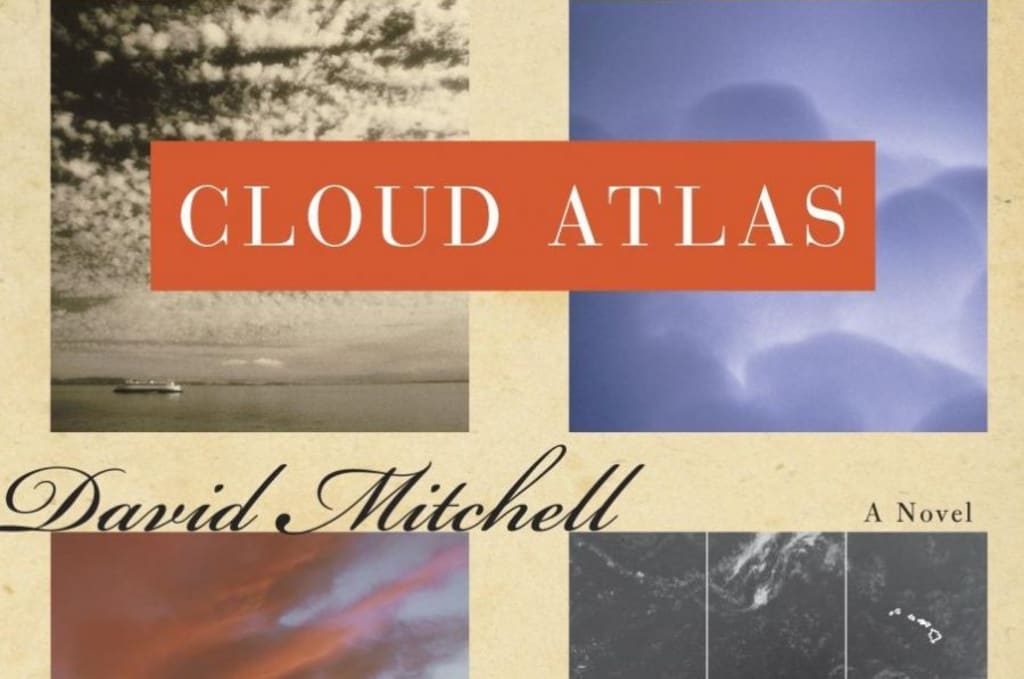
It has been a while since I first read “Cloud Atlas” by David Mitchell. I was sixteen years’ old and my first reading experience of it basically blew my mind. I stayed up all night making notes, drawing sketches of characters and by the morning, I was not only insanely tired, but I had a whole notebook filled with masses and masses of information about the book. I had handwritten over one hundred pages of notes, quotations, sketches, drawings, opinions, lists and so many other things. This would be an annual thing and now I can’t live without the book. I still have my copy from all the way back then. I used it at university for one of my essays and it’s now covered in notes and highlighting. Now, my copy is safely tucked into a box under my bed and I take it out every now and again, I was reading it the night before my twenty-first birthday, at Christmas whilst I was twenty-three and I read it recently and the ripe age of twenty-four. It changed my entire opinion on the very limitations of literature. The truth is: there are no limitations.
My favourite character in the book is Robert Frobisher. He is a pianist, like myself and he can compose music. He is also a serial con artist. He’s a brilliantly beautiful human being with a great amount of talent but absolutely nothing to do with it. He creates the Cloud Atlas and it’s stolen from him. He cannot get back to his love, but his greatest quality is his amazing patience with his situation. His endurance is so strong against characters like Vyvyan Ayrs and all the characters trying to keep him and Sixsmith apart. At the end of the day, Robert’s letters are some of the most patient, most Byronic, and best written parts of the book. Robert’s greatest fault though is his action upon situation. He normally makes bad choices and one bad choice that he makes will pretty much cost him everything - absolutely everything. The fact that it costs him everything makes us more intensely involve ourselves with Robert Frobisher’s life even though its’ pretty much over due to the bad choices he has made throughout his existence. His faults will not only cost him everything, but they will have a direct impact on everything that happens in the rest of the book over the next hundreds of years. It is also a product of what has happened hundreds of years in the past and that is the very point of the book. Everything is connected. Robert Frobisher represents the dead centre of the book. He is neither past nor present. He is eternal and he is always. He is the brilliance, the conductor and the maestro of the newer events of the books and the characters seem to seek their story by putting Robert in the centre of their own - like Luisa Rey. She puts Sixsmith and Frobisher into her story and only then does she find herself and who she really is in this intensely connected world.
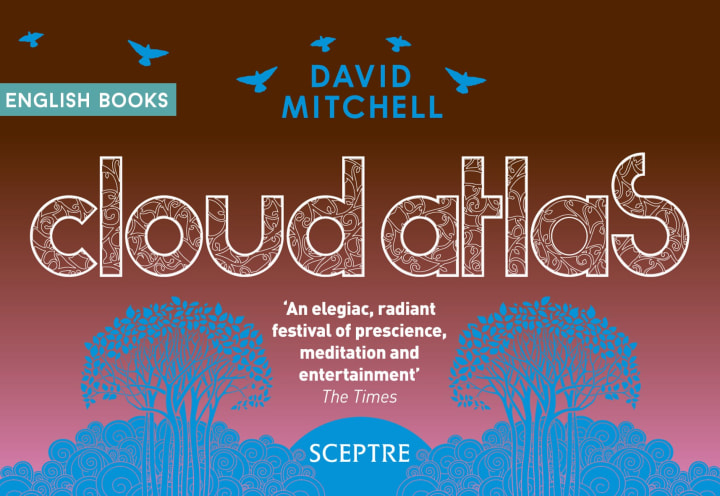
One of the key themes in this book is time. Time goes by in this book in order to connect the past to the present and to the future. This is also a way of making every character’s story interlink with everyone else’s even though they all live in an absolutely different time period. This theme entails the way in which not only the characters are connected but how every one of their actions impacts the lives of people living hundreds of years away from themselves. It’s like a butterfly effect. The characters are the ones who actually play out the theme because without all these intensely different characters with these massively different stories, we would not really get the idea that every single character requires their own time and context to make their mistakes and to have them impact the rest of the novel. This theme is used, I believe, for the effect of making the stories not only link together but also because of the way in which the characters behave are contextual to the time in which they live. We have characters who are slave owners and we have characters who are capitalists. We have characters who are musicians and con artists, characters who are closeted homosexuals. There’s no end to the personalities of characters and yet, each and every one of them is a product of their own time and so, making the time in which they live perfectly clear is required in order to let the reader understand the character themselves more. Whether they are normal and regular for their time or whether they are rebellious and anti-government/lawless for their time only depends really on the time in which they live. How they live is only important to the other characters. It is the time that impacts how we feel about the nature of the character. The time is also important because it represents the attitudes of the other characters towards them within their own time period. Are they viewed as a conventional person to be respected by others, are they rich or poor and how much power they have. For example: Frobisher has pretty much no power and is a closeted homosexual, so is outcasted in his time of the early 20th century. Time is the most important thing about the book and ever since it is first introduced in the Pacific Journal, we get many different looks into why time is so important to each and every point in the book from the very first word.
This book had a profound effect on my entire existence and literally came to change everything I believed about time in its linear state. I came to think about the way writing is done in an entirely different way and I fell completely in love with the way in which this book made me see all of these things differently. My latter reading experiences were impacted because then, I read a lot more David Mitchell books than what I had first intended. My re-readings of these books have been completely immersive and every single time I read it, I fall entirely in love all over again. It’s one of the greatest books of all time and has an amazing interaction between book and reader. It is like it’s beckoning me. The best thing about this book is the way in which it brings you back every single time to the point you can’t even open the book to look inside without reading the entire thing again and again. You’ll lose yourself in it entirely, I promise.
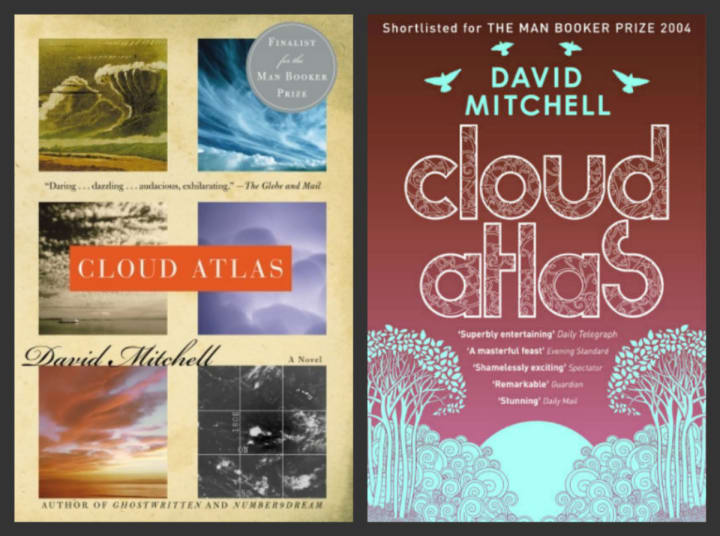
I think a lot more people should read this book and then watch the movie. The book goes into so much more detail, even though the film is amazing as well. Yet this book is read by a lot of people because they feel a similar way to me. They are obsessed with the way in which this book is so different in its understanding of the nature of time and action. Upon my next re-read, I want to explore the similarities between Luisa Rey and Robert Frobisher in their characters, ostracisation and nature of their perceptions of time. It’s going to be amazing.
“Our lives are not our own. We are bound to others, past and present, and by each crime and every kindness, we birth our future.”
"Cloud Atlas" by David Mitchell
About the Creator
Annie Kapur
200K+ Reads on Vocal.
English Lecturer
🎓Literature & Writing (B.A)
🎓Film & Writing (M.A)
🎓Secondary English Education (PgDipEd) (QTS)
📍Birmingham, UK


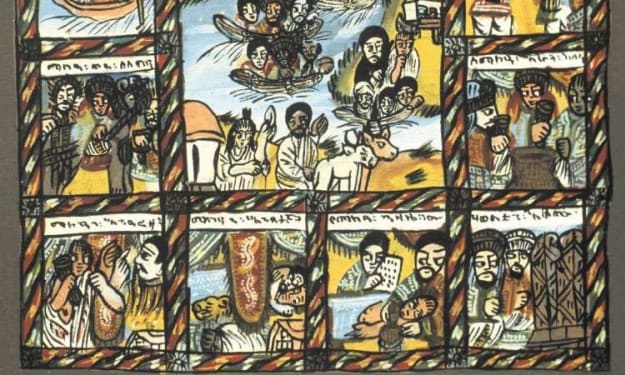

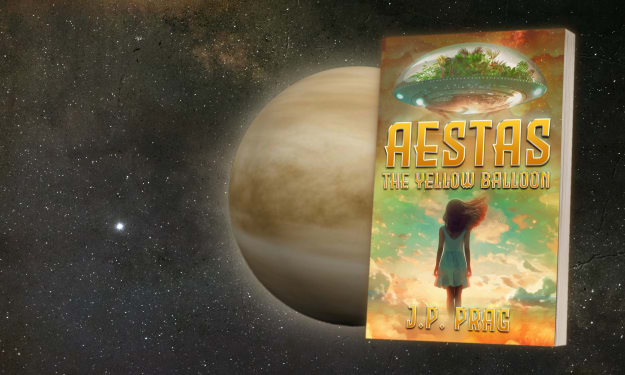

Comments
There are no comments for this story
Be the first to respond and start the conversation.